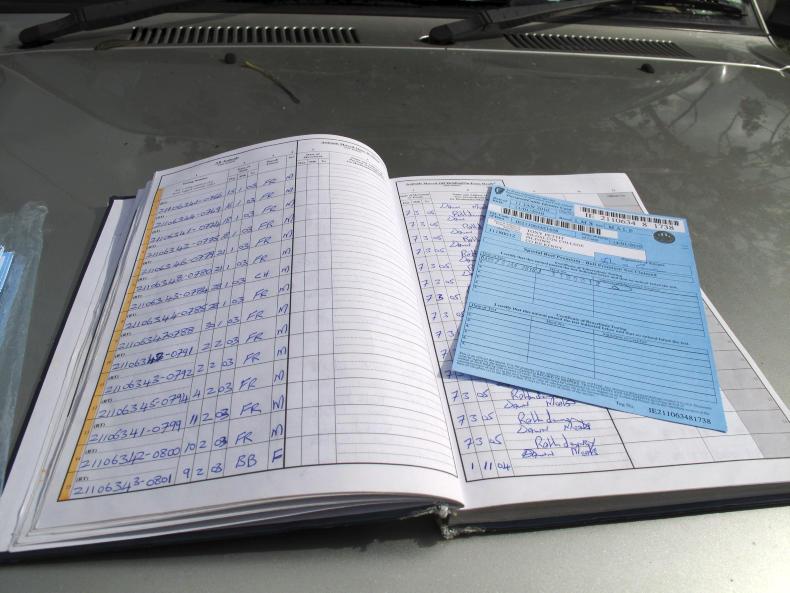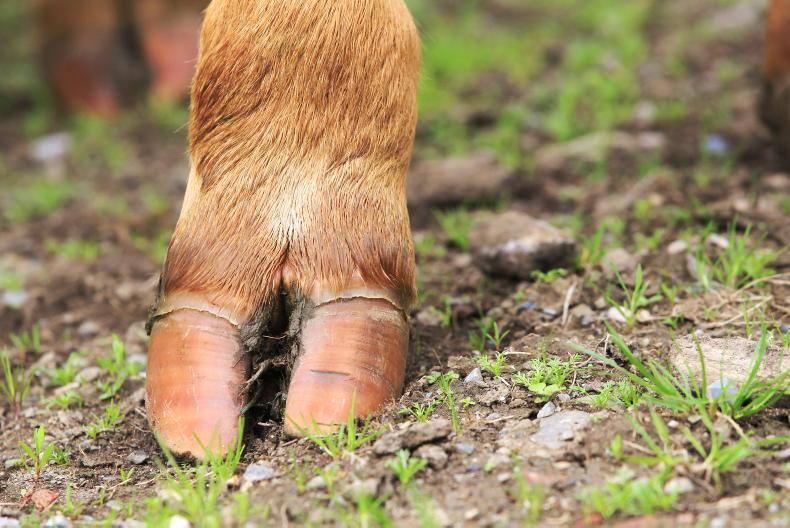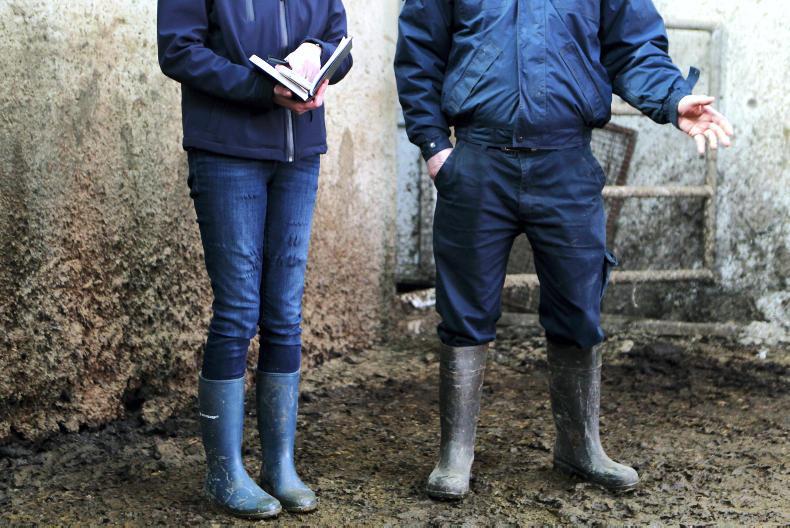EU legislation requires the Department of Agriculture to carry out on-the-spot inspections annually on a number of farms to ensure they meet cross-compliance requirements.
Farms are assessed against 13 legally-based statutory management requirements (SMRs) and seven standards for good agricultural and environmental conditions (GAEC).
In 2016, the most common cross-compliance breaches found on farms were:
SMR 1: protection of
water from nitrates
Inspectors found farms with inadequate collection of livestock manure, other organic fertilisers, soiled water or silage effluent, failure to minimise soiled water and structural defects in storage facilities leading to direct or indirect runoff to groundwater or surface water.
SMR 7: cattle
identification
The majority of problems in this area were related to tagging irregularities such as animals missing tags, animals not tagged within 20 days of birth or animals missing both ear tags. Inspectors also found that farmers had failed to notify movements, births and deaths to the database within seven days, and passport discrepancies such as no passports for purchased animals, missing passports and surplus passports.
SMR 8: sheep and goat identification
The most common issues were census/database problems in relation to tagging irregularities such as sheep not tagged, tagged incorrectly (no EID tag), missing both tags or adult sheep missing one ear tag. A number of farmers failed to adequately maintain a flock register.
GAECs 5 and 7: soil erosion and landscape features
Almost half (48%) of all breaches of GAEC rules related to GAEC 5 and poaching of land. Inspectors noted particular problems with sacrifice paddocks and failing to regularly move supplementary feeding points.
A further 47% of breaches related to GAEC 7, which is aimed at protecting landscape features and designated habitats and controlling invasive species and noxious weeds.
SMRs 11, 12 and 13:
animal welfare
Some 66% of all welfare breaches related to SMR 13, where farmers failed to maintain animal remedies records, or where disbudding/dehorning, tail docking or castration were not carried out according to the legal requirements. The remaining welfare breaches were related to lying areas for calves not being comfortable, clean and adequately drained, and the level of cleaning and disinfecting of housing, equipment and utensils used for calves.
SMR 10: plant protection products (pesticides)
One-third of all problems related to product registration breaches. Farmers failed to put warning signs on chemical stores, and had issues with storage facilities breaches and inadequate records.
Read more
Inspections clampdown: farmers fall foul of cross-compliance rules
More than 2,500 farmers fined under cross-compliance last year
Cross-compliance: the most common problems
Fewer farms get the all-clear
Satellite checks result in 1,000 land eligibility penalties
EU legislation requires the Department of Agriculture to carry out on-the-spot inspections annually on a number of farms to ensure they meet cross-compliance requirements.
Farms are assessed against 13 legally-based statutory management requirements (SMRs) and seven standards for good agricultural and environmental conditions (GAEC).
In 2016, the most common cross-compliance breaches found on farms were:
SMR 1: protection of
water from nitrates
Inspectors found farms with inadequate collection of livestock manure, other organic fertilisers, soiled water or silage effluent, failure to minimise soiled water and structural defects in storage facilities leading to direct or indirect runoff to groundwater or surface water.
SMR 7: cattle
identification
The majority of problems in this area were related to tagging irregularities such as animals missing tags, animals not tagged within 20 days of birth or animals missing both ear tags. Inspectors also found that farmers had failed to notify movements, births and deaths to the database within seven days, and passport discrepancies such as no passports for purchased animals, missing passports and surplus passports.
SMR 8: sheep and goat identification
The most common issues were census/database problems in relation to tagging irregularities such as sheep not tagged, tagged incorrectly (no EID tag), missing both tags or adult sheep missing one ear tag. A number of farmers failed to adequately maintain a flock register.
GAECs 5 and 7: soil erosion and landscape features
Almost half (48%) of all breaches of GAEC rules related to GAEC 5 and poaching of land. Inspectors noted particular problems with sacrifice paddocks and failing to regularly move supplementary feeding points.
A further 47% of breaches related to GAEC 7, which is aimed at protecting landscape features and designated habitats and controlling invasive species and noxious weeds.
SMRs 11, 12 and 13:
animal welfare
Some 66% of all welfare breaches related to SMR 13, where farmers failed to maintain animal remedies records, or where disbudding/dehorning, tail docking or castration were not carried out according to the legal requirements. The remaining welfare breaches were related to lying areas for calves not being comfortable, clean and adequately drained, and the level of cleaning and disinfecting of housing, equipment and utensils used for calves.
SMR 10: plant protection products (pesticides)
One-third of all problems related to product registration breaches. Farmers failed to put warning signs on chemical stores, and had issues with storage facilities breaches and inadequate records.
Read more
Inspections clampdown: farmers fall foul of cross-compliance rules
More than 2,500 farmers fined under cross-compliance last year
Cross-compliance: the most common problems
Fewer farms get the all-clear
Satellite checks result in 1,000 land eligibility penalties









SHARING OPTIONS